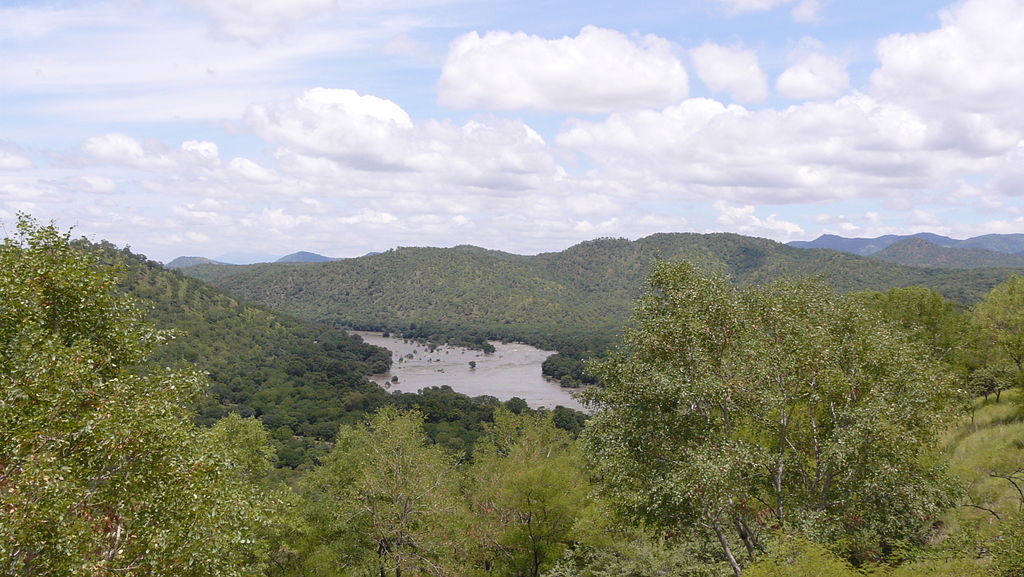The state government believes that implementation of the Kasturirangan report will impede the development of the region.

A view of the environmentally sensitive Western Ghats. (Creative Commons)
The BJP-led Karnataka government has locked horns with the BJP-led Union government over the Western Ghats being notified as an Ecologically Sensitive Area (ESA).
On Monday, 18 July, Chief Minister BS Bommai chaired a meeting with legislators representing constituencies in the Western Ghats to discuss its inclusion in the ESA.
BJP MLA from Kodagu’s Virajpet constituency, KG Bopaiah, told South First: “We have unanimously decided to reject the Union government’s ESA draft notification on Western Ghats as it is against the interests of the people of the region.”
On 6 July, the Union Ministry of Environment, Forests and Climate Change had re-issued a draft notification to declare the Western Ghats — which spans the states of Kerala, Tamil Nadu, Karnataka, Goa, Maharashtra and Gujarat — as eco-sensitive areas. Among the six states, 20,668 sq km of the ESA lies in Karnataka.
The notification issued to Karnataka by the Centre is based on the Kasturirangan committee report which was submitted in April 2013, and was accepted by the Centre in November that year. The committee was a high level working group headed by Dr K Kasturirangan and its members were Dr YVN Krishna Murthy, Dr VB Mathur and Dr Subhash Ashutosh.
Bopaiah, who was part of the meeting chaired by the chief minister, said: “The Kasturirangan report was prepared based on the satellite images and inputs whereas the reality on the ground is different. People of the ghats are engaged in eco-friendly agriculture and horticultural activities.”
The state government believes that implementation of the report will impede the developmental activities in the region.
The districts that form part of the Western Ghats in Karnataka are Uttara Kannada, Chikkamagaluru, Shimoga, Hassan, Kodagu, Dakshina Kannada, and Belagavi.
Chikkamagaluru-based convenor of the Paschima Ghatta Jagruti Vedike, Sahadev Koppa, told South First: “The present form of Kasturirangan report is a much diluted form of the Gadgil committee report. Its rejection by state leaders and the state government is dangerous for the future of the Western Ghats.”
“Occurrence of mishaps such as landslides, floods in the region are examples of what can happen by tampering with ghat’s ecological balance,” he added.
In 2011, the Western Ghats Ecology Expert Panel (WGEEP), popularly known as Gadgil committee, had asked for a ban on mining and quarrying in the entire eco-sensitive zone, but it was termed as biased against development.
WGEEP Chairman Prof Madhav Gadgil told South First: “The scientific suggestions for preservation of the Western Ghats that we made were ridiculed. Instead, another panel (the Kasturirangan panel) was established that denied the role of local populace in the existence of ghats.”
Dr TV Ramachandra, professor at the Centre for Ecological Sciences at Indian Institute of Science (IISc) termed the state government’s decision to oppose the ESA draft as foolish.
He told South First: “In the name of development and vested interest, degrading the Western Ghats, i.e. the ‘Water Tower of India’, is a dangerous decision.”
The states of Goa and Kerala have also expressed their reservations on the ESA notification. The Goa government declared its opposition to the ESA while Kerala’s forest minister met Union Environment Minister Bhupendra Yadav to oppose the notification.

Jul 25, 2024

Jul 25, 2024

Jul 25, 2024

Jul 24, 2024

Jul 24, 2024

Jul 23, 2024